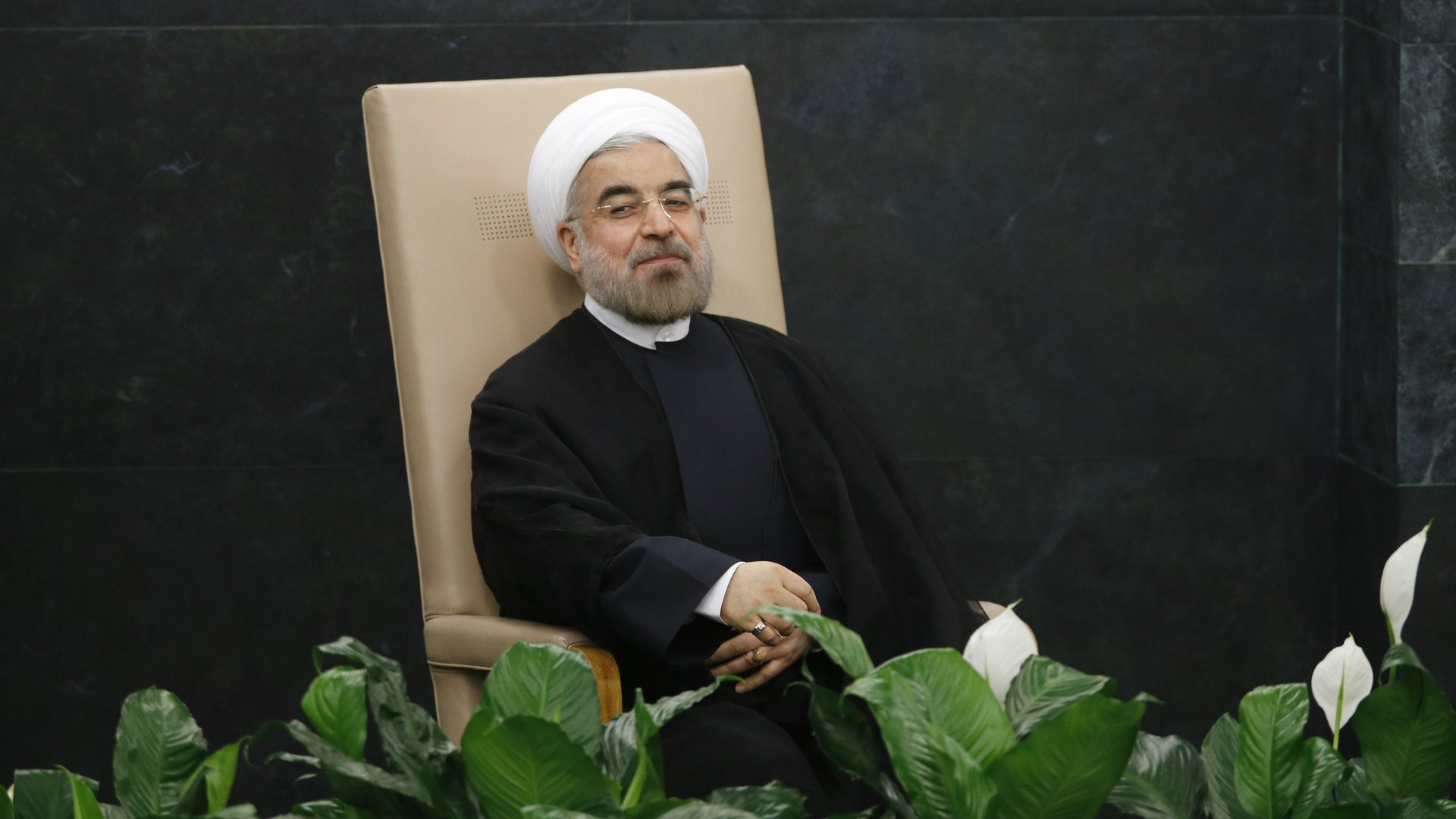A top expert has turned pessimistic on Iran’s nuclear talks with the West
As US and Iranian negotiators held talks today in Geneva, a leading expert has reversed himself and reduced the chances of a nuclear deal to 40%.


As US and Iranian negotiators held talks today in Geneva, a leading expert has reversed himself and reduced the chances of a nuclear deal to 40%.
Eurasia Group’s Cliff Kupchan had previously been cautiously optimistic that, despite the public sneering from both sides, there was a 60% chance that Western-led negotiators and Iran would sign a deal by the Nov. 24 deadline. But in a note to clients today, he said dug-in politics on both sides have convinced him that there is now a 60% chance of failure, and that there will be no extension of the deadline. He said hawks on both sides will block any more talks should these fail.
Indeed, relations have been testy between the two countries in recent days. On Friday, the United States announced a new set of penalties against companies accused of violating sanctions on Iran. This prospect, however, does not appear to frighten Iran: Oil minister Bijan Zanganeh said Tehran does not recognize the sanctions, designed to obstruct Iran’s nuclear program, and will continue to bypass them. The next round of formal talks between six world powers and Tehran are scheduled to begin Sept. 18.
Kupchan, a former State Department official, is a sober and widely respected voice on an issue that is often politicized and obscured by hyperbolic partisanship. In his newly pessimistic stance, Kupchan sees a renewed US-led crackdown and political grief for Iran’s new president, Hassan Rouhani. Kupchan said that among the first things the US will do is attempt to take more of the 1.2 million barrels a day of oil off the market that Iran still exports.
“A ‘no deal’ outcome would involve harsh new sanctions, a weakening of the centrist government of President Hassan Rouhani, and increased geopolitical risk,” Kupchan said.
If Kupchan is right—though his odds allow that there is still a chance of a deal—worsened relations with Iran will be added to the cocktail of unusually disruptive events around the world, including the rise of the Islamic State and the war between Russia and Ukraine.
The Western-led negotiators and Iran have been attempting for almost a year to reach a deal that would result in Iran seriously pushing back its perceived ambitions to create a nuclear bomb, in exchange for a gradual lifting of economic sanctions. They reached a preliminary agreement last November that resulted in Iran eliminating its stockpile of nuclear material that contained 20% of enriched uranium. In exchange, Iran got some $7 billion in cash as sanctions relief. Japan handed over $1 billion of the money just today.
As evidence for his grim assessment, Kupchan said that there is no sign of the Iranian side “preparing its elite for a deal. To the contrary, statements by top officials have become considerably harsher over the past two months.” US politics, too, complicate a deal, since some powerful think tanks and interest groups oppose lifting the sanctions, and convincing Congress to do so would be a challenge.
“Domestic politics in both the US and Iran have evolved into significant obstacles to a deal,” Kupchan said.